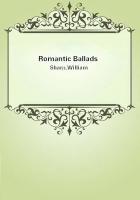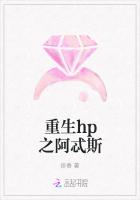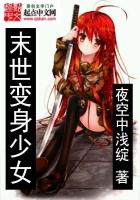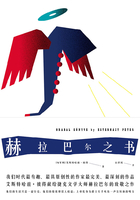By virtue of this science the poet is the Namer, or Language-maker, naming things sometimes after their appearance, sometimes after their essence, and giving to every one its own name and not another's, thereby rejoicing the intellect, which delights in detachment or boundary. The poets made all the words, and therefore language is the archives of history, and, if we must say it, a sort of tomb of the muses. For, though the origin of most of our words is forgotten, each word was at first a stroke of genius, and obtained currency, because for the moment it symbolized the world to the first speaker and to the hearer. The etymologist finds the deadest word to have been once a brilliant picture. Language is fossil poetry. As the limestone of the continent consists of infinite masses of the shells of animalcules, so language is made up of images, or tropes, which now, in their secondary use, have long ceased to remind us of their poetic origin. But the poet names the thing because he sees it, or comes one step nearer to it than any other. This expression, or naming, is not art, but a second nature, grown out of the first, as a leaf out of a tree. What we call nature, is a certain self-regulated motion, or change; and nature does all things by her own hands, and does not leave another to baptise her, but baptises herself; and this through the metamorphosis again. I remember that a certain poet described it to me thus:
Genius is the activity which repairs the decays of things, whether wholly or partly of a material and finite kind. Nature, through all her kingdoms, insures herself. Nobody cares for planting the poor fungus: so she shakes down from the gills of one agaric countless spores, any one of which, being preserved, transmits new billions of spores to-morrow or next day. The new agaric of this hour has a chance which the old one had not. This atom of seed is thrown into a new place, not subject to the accidents which destroyed its parent two rods off. She makes a man; and having brought him to ripe age, she will no longer run the risk of losing this wonder at a blow, but she detaches from him a new self, that the kind may be safe from accidents to which the individual is exposed. So when the soul of the poet has come to ripeness of thought, she detaches and sends away from it its poems or songs, -- a fearless, sleepless, deathless progeny, which is not exposed to the accidents of the weary kingdom of time: a fearless, vivacious offspring, clad with wings (such was the virtue of the soul out of which they came), which carry them fast and far, and infix them irrecoverably into the hearts of men. These wings are the beauty of the poet's soul. The songs, thus flying immortal from their mortal parent, are pursued by clamorous flights of censures, which swarm in far greater numbers, and threaten to devour them; but these last are not winged. At the end of a very short leap they fall plump down, and rot, having received from the souls out of which they came no beautiful wings. But the melodies of the poet ascend, and leap, and pierce into the deeps of infinite time.
So far the bard taught me, using his freer speech. But nature has a higher end, in the production of new individuals, than security, namely, _ascension_, or, the passage of the soul into higher forms. I knew, in my younger days, the sculptor who made the statue of the youth which stands in the public garden. He was, as I remember, unable to tell directly, what made him happy, or unhappy, but by wonderful indirections he could tell. He rose one day, according to his habit, before the dawn, and saw the morning break, grand as the eternity out of which it came, and, for many days after, he strove to express this tranquillity, and, lo! his chisel had fashioned out of marble the form of a beautiful youth, Phosphorus, whose aspect is such, that, it is said, all persons who look on it become silent. The poet also resigns himself to his mood, and that thought which agitated him is expressed, but _alter idem_, in a manner totally new. The expression is organic, or, the new type which things themselves take when liberated. As, in the sun, objects paint their images on the retina of the eye, so they, sharing the aspiration of the whole universe, tend to paint a far more delicate copy of their essence in his mind. Like the metamorphosis of things into higher organic forms, is their change into melodies. Over everything stands its daemon, or soul, and, as the form of the thing is reflected by the eye, so the soul of the thing is reflected by a melody. The sea, the mountain-ridge, Niagara, and every flower-bed, pre-exist, or super-exist, in pre-cantations, which sail like odors in the air, and when any man goes by with an ear sufficiently fine, he overhears them, and endeavors to write down the notes, without diluting or depraving them. And herein is the legitimation of criticism, in the mind's faith, that the poems are a corrupt version of some text in nature, with which they ought to be made to tally. A rhyme in one of our sonnets should not be less pleasing than the iterated nodes of a sea-shell, or the resembling difference of a group of flowers. The pairing of the birds is an idyl, not tedious as our idyls are; a tempest is a rough ode, without falsehood or rant: a summer, with its harvest sown, reaped, and stored, is an epic song, subordinating how many admirably executed parts. Why should not the symmetry and truth that modulate these, glide into our spirits, and we participate the invention of nature?


